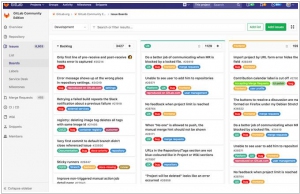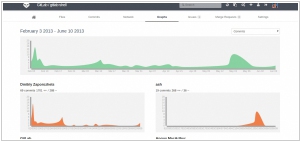Azure DevOps vs Gitlab
July 27, 2023 | Author: Michael Stromann
14

GitLab offers git repository management, code reviews, issue tracking, activity feeds and wiki’s. Enterprises install GitLab on-premise and connect it with LDAP and Active Directory servers for secure authentication and authorization. A single GitLab server can handle more than 25,000 users but it is also possible to create a high availability setup with a multiple active servers.
Azure DevOps and GitLab are both popular DevOps platforms, each offering a range of tools to support software development and collaboration. Azure DevOps, provided by Microsoft, is a comprehensive platform that encompasses version control, continuous integration and continuous deployment (CI/CD), project management, and testing capabilities. It integrates seamlessly with Git for version control and provides a set of powerful features to facilitate the entire software development lifecycle. On the other hand, GitLab is a single application for the entire DevOps lifecycle, covering source code management with Git, CI/CD pipelines, container registry, and project planning and tracking. GitLab's strength lies in its all-in-one approach, providing a unified and cohesive environment for development teams to work collaboratively.
See also: Top 10 Source Code Management tools
See also: Top 10 Source Code Management tools
Azure DevOps vs Gitlab in our news:
2015. Collaboration platform for developers GitLab raises $4M

GitLab, the open source Git-based collaboration platform for developers, has announced that it successfully secured $4 million in Series A funding. The company provides a free community edition, a free SaaS version, and a paid enterprise edition of its service. With the newly acquired funding, GitLab aims to expedite its growth and expand its global operations. Git has become the go-to method for code management among numerous development teams. While GitHub stands as the most well-known Git-hosting service, there exist several competitors in this realm, each offering their own unique approach and user interface on top of the fundamental hosted Git concept. Atlassian, for instance, provides both free and paid Git hosting services. What sets GitLab apart from some of these competitors is its strong emphasis on its open source solution.



